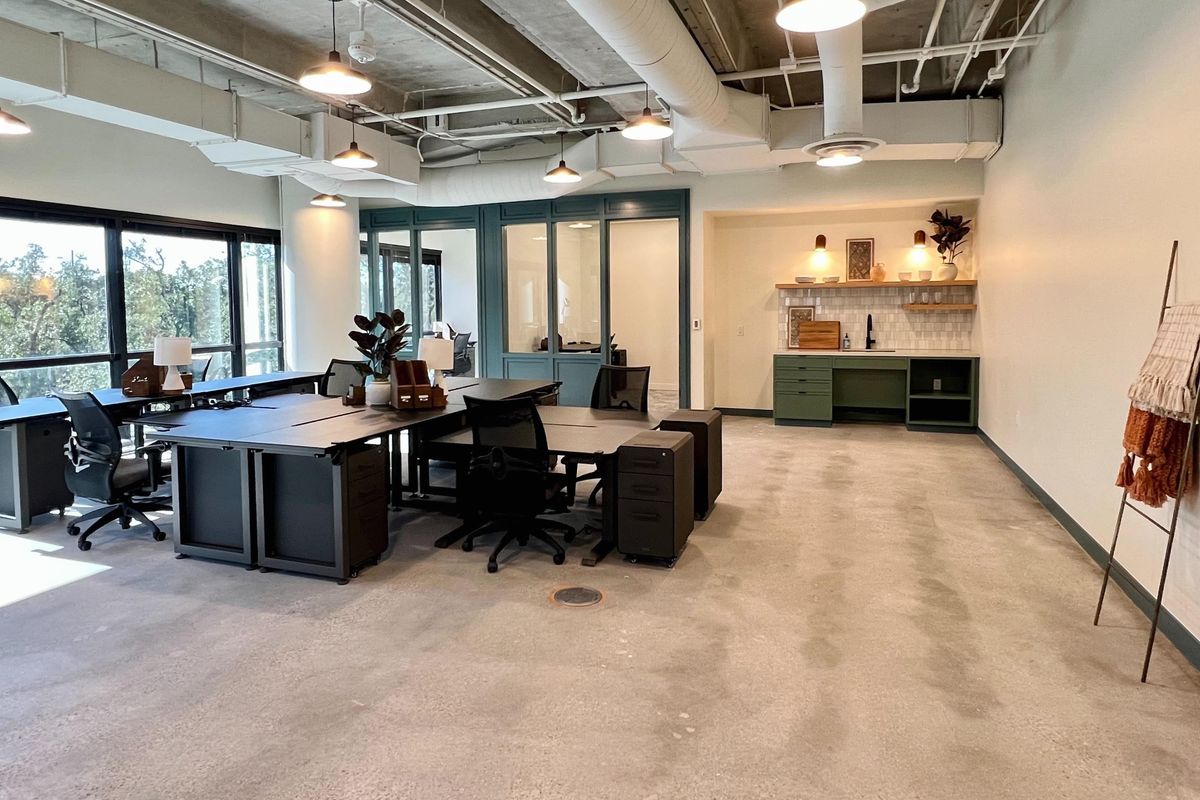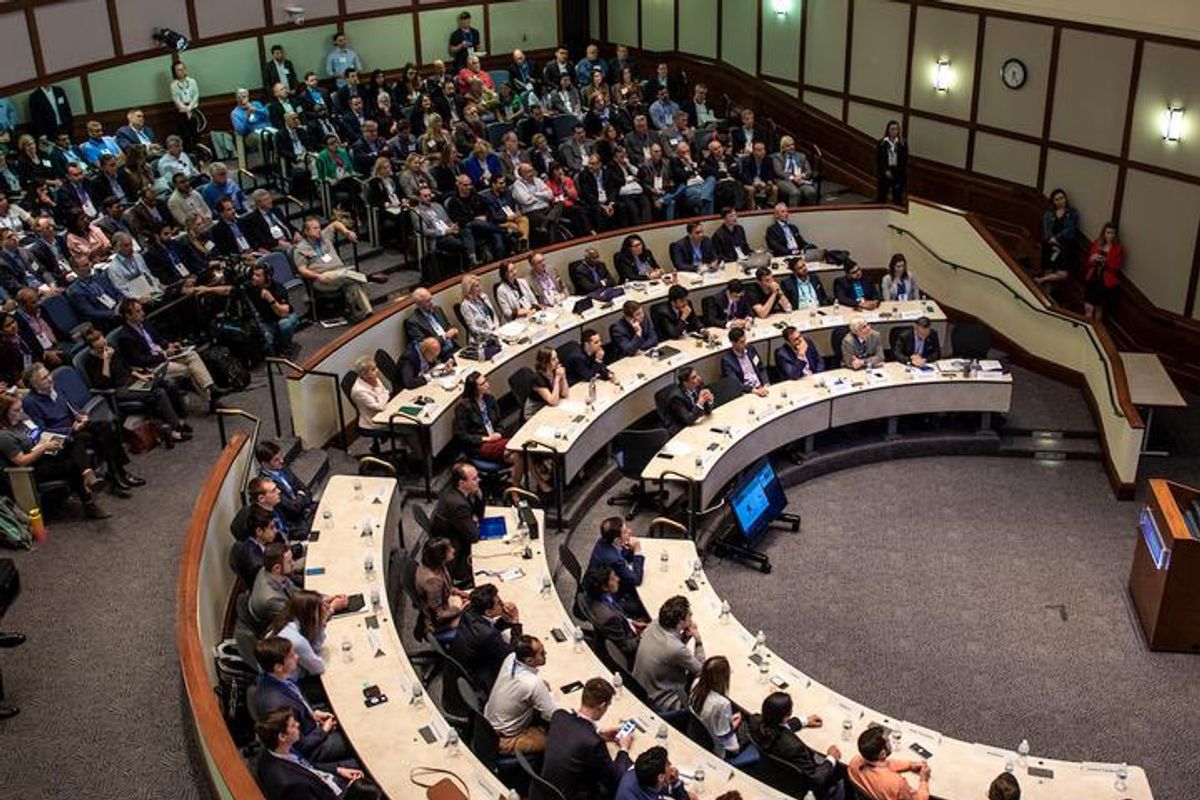Over the weekend, Houston hosted what is known as the world’s largest and richest intercollegiate student startup competition, and a Texas team took the overall win and over $3 million in investment prizes were given out at the annual banquet.
The 2023 Rice Business Plan Competition was held May 11-13 and included mentoring, pitching, and networking for the 42 student teams with over 350 judges before culminating in over 80 prizes being announced. The $3.4 million in investment and in-kind prizes marks the largest yet for the 23-year-old competition.
"Judges told us that the quality of the startups at this year’s competition was the best ever,” says Catherine Santamaria, director of the RBPC, in the news release. “One judge went so far as to say that every startup this year was worthy of investment.”
Over 450 startups applied to the competition, and the 42 startups selected hailed from 35 universities from five countries. There were five categories: energy, clean tech and sustainability; life sciences and health care solutions; consumer products and services; hard tech; and digital enterprise. Based on the judges scores, seven startups reached the finals, and this year, three Texas teams made the finals, with two being from Rice University.
All 42 companies were eligible for investment or in-kind prizes, and, even though $1.75 million in prizes was expected to be awarded, some of this year's investors doubled — or even tripled — down on investment awards. While the finalists walked away with various in-kind prizes too, here's a round up of the investment prizes each startup won at the awards.
Zaymo, Brigham Young University — $885,000
Zaymo, a tool for e-commerce brands that embeds the shopping experience within customers’ email, won the most amount of money at the awards ceremony. The company won third place and a $50,000 Investment Prize sponsored by David Anderson, Jon Finger, Anderson Family Fund, Finger Interests, Greg Novak and Tracy Druce. Zaymo also won the following awards:
- $200,000 OWL Investment Prize
- $100,000 Houston Angel Network Investment Prize
- $500,000 Softeq Venture Fund Prize
- $15,000 Eagle Investors Prize
- $20,000 Novak Druce Carroll Investment Prize
Boston Quantum, Massachusetts Institute of Technology — $455,000
Boston Quantum, which is using enterprise quantum computing software to disrupt the financial industry, won the second-most amount of investment prizes and sixth place in the competition.
- $5,000 Chevron Technology Ventures Sixth-Place Cash Prize
- $300,000 OWL Investment Prize
- $125,000 Softeq Venture Fund Prize
- $25,000 Urban Capital Network Diversity Investment Prize in partnership with South Loop Ventures
FluxWorks, Texas A&M University — $350,000
Based on the judges scores, the big winner was FluxWorks, a Texas company that's technology includes magnetic gears that are four times quieter than standard with 99 percent efficiency and can offer unprecedented reliability from outer space to under the sea and even inside the human body. The company won the $350,000 GOOSE Capital Investment Grand Prize.
Skali, Northwestern University — $300,000
Skali, which didn't make it into the prestigious finalist positions, still walked away with $300,000 courtesy of the Softeq Venture Fund Prize. Skali's technology aims to better equip flights with medical emergency assistance.
TierraClimate, Rice University — $280,000
TierraClimate, a marketplace for selling verified carbon offsets to corporate buyers, won fourth place and the Norton Rose Fulbright $5,000 Prize. The company also won a $200,000 Softeq Venture Fund Prize and the $75,000 OWL Investment Prize.
AirSeal, Washington University in St. Louis — $250,000
Another non-finalist that still scored big was AirSeal, a company that's created a simple blood test for cardiovascular diagnostics. The startup secured the $250,000 TMC Innovation Healthcare Investment Prize.
Sygne Solutions, Rice University — $200,000
Sygne Solutions, a startup on a mission of eliminating a group of chemicals known as PFAS in water through its patent-pending technology, won second place and the $100,000 Investment Prize, sponsored by David Anderson, Jon Finger, Anderson Family Fund, Finger Interests, Greg Novak and Tracy Druce. The company also received the $100,000 TiE Houston Angels Investment Prize.
BlueVerse, Texas Tech University — $145,000
BlueVerse, a startup with tech to merge social media with reviews and rewards for small businesses, didn't make the finals but walked away with on of the $125,000 Softeq Venture Fund Prizes and the $20,000 Novak Druce Carroll Investment Prize.
Atma Leather, Yale University —$130,000
Atma Leather, a material innovation company that's created plant-based leather from banana stems and other crop waste, came in fifth place and secured the $5,000 EY Fifth-Place Cash Prize. The startup also won:
- $75,000 OWL Investment Prizes
- $50,000 nCourage Investment Group’s Courageous Women Entrepreneurs Investment Prize
MyLÚA Health, Cornell University — $30,000
MyLÚA Health's AI technology supports the maternal health industry. The company won the $30,000 Pearland Economic Development Corporation Spirit of Entrepreneurship Prize.
Active Surfaces, Massachusetts Institute of Technology — $25,000
With its flexible and lightweight solar panel technology, Active Surfaces scored the $25,000 New Climate Ventures Sustainability Investment Prize.
Integrated Molecular Innovations, Michigan Technological University — $25,000
Integrated Molecular Innovations, which created a wearable device that can monitor hormone levels, won the $25,000 Southwest National Pediatric Device Consortium Prize.
MiraHeart, Johns Hopkins University — $25,000
MiraHeart, which created a non-invasive way of monitoring child heart conditions, also won the $25,000 Southwest National Pediatric Device Consortium Prize.
Biome Future, University of Florida — $20,000
Biome Future, which creates ocean-safe chemicals via microbes in corals, won one of the $20,000 Novak Druce Carroll Investment Prizes.
Citrimer, University of Michigan — $10,000
A sustainable materials company, Citrimer won the $10,000 NABACO RBPC Alumni Network Prize.
Thryft Ship, University of Georgia — $10,000
Thryft Ship, which streamlines the shipping process for social media sellers, won a $10,000 nCourage Investment Group’s Courageous Women Entrepreneurs Investment Prize.
Pathways, Harvard University — $5,000
Pathways, which is developing a full-stack sustainability platform for the construction industry, won $5,000 Shell Ventures Seventh-Place Cash Prize.
In addition to these investment prizes, the startups have the chance to score in-kind prizes. This year, that included:
- $6,667 Baker Botts Legal Services In-Kind Prize to FluxWorks, Texas A&M University
- $6,667 Baker Botts Legal Services In-Kind Prize to Sygne Solutions, Rice University
- $6,667 Baker Botts Legal Services In-Kind PrizeFluxWorks to Zaymo, Brigham Young University
- $10,000 New York Technology Capital CFO Consulting In-Kind to FluxWorks, Texas A&M University
- EFN Mentoring Services to all startup competitors
- Amazon Web Services to all startup competitors
- Stage 2 Competition Entry to Sygne Solutions, Rice University
All 42 of the RBPC companies wins at least $950. In each of the three semi-final rounds, third place wins $2,000, fourth place wins $1,750, and fifth place wins $1,500. The wild card round, which acts as a second-chance competition for the companies that didn't originally make it to the finals, advances the wild card winner into the finals and also awards second place $1,000, third place $975, fourth place $950, and fifth place $950.










